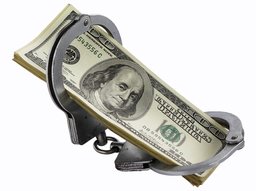 When someone files for bankruptcy protection they don’t expect to have their discharged bills come back to haunt them. Zombie debts are not unheard of, but are rarely seen in the multitude that has been alleged against Capital One by a court-appointed monitor. Some of these debts, including one sought fourteen years after it was discharged, are for thousands of dollars.
When someone files for bankruptcy protection they don’t expect to have their discharged bills come back to haunt them. Zombie debts are not unheard of, but are rarely seen in the multitude that has been alleged against Capital One by a court-appointed monitor. Some of these debts, including one sought fourteen years after it was discharged, are for thousands of dollars.
Unlike most lenders, Capital One handles most of it’s debt collection internally, rather than outsourcing to collection firms. This may be part of their problem as collection firms are usually well versed in the Fair Debt Collection Practices Act.
Out of the 15,500 bogus claims made by Capital One only about 800 of those borrowers filed lawsuits against the creditor. 130 of these cases were settled without Capital One admitting fault. Not all attorneys will file suit against a creditor for attempting to collect a discharged debt, but it’s important that debtors know that they can. Without the remedy of suing the creditor, there would be little to no use of the bankruptcy court at all.
 Jacksonville Bankruptcy Lawyer Blog
Jacksonville Bankruptcy Lawyer Blog



 Upon filing for bankruptcy protection, an automatic stay is put in place. This means that creditors can not try and collect from you. So a creditor cannot call you to request payment, send bills to you, garnish your wages anymore, or repossess your car without court permission. If there is a foreclosure suit against you, that suit must also stop immediately. If your home is sold and you filed prior to the sale, that sale can be vacated. Obviously, this is a powerful tool bankruptcy. Many people file to stop creditors from taking actions against them or their property.
Upon filing for bankruptcy protection, an automatic stay is put in place. This means that creditors can not try and collect from you. So a creditor cannot call you to request payment, send bills to you, garnish your wages anymore, or repossess your car without court permission. If there is a foreclosure suit against you, that suit must also stop immediately. If your home is sold and you filed prior to the sale, that sale can be vacated. Obviously, this is a powerful tool bankruptcy. Many people file to stop creditors from taking actions against them or their property.  There’s not much that inspires us to act (or not act) than the threat of imprisonment. Collection agencies are using a new angle on collections that can lead to the arrest of unwitting debtors.
There’s not much that inspires us to act (or not act) than the threat of imprisonment. Collection agencies are using a new angle on collections that can lead to the arrest of unwitting debtors.  Jacksonville has plenty of options when it comes to payday loans, be it “Check ‘n Go” or “Advance America”, you know they’re all over town. A relatively
Jacksonville has plenty of options when it comes to payday loans, be it “Check ‘n Go” or “Advance America”, you know they’re all over town. A relatively  Sometimes debts that are supposed to be ‘dead and gone’ don’t stay buried. These debts are nicknamed, “Zombie Debts”. With the difficulties in the economy, debt collectors are being more creative with their collection attempts.
Sometimes debts that are supposed to be ‘dead and gone’ don’t stay buried. These debts are nicknamed, “Zombie Debts”. With the difficulties in the economy, debt collectors are being more creative with their collection attempts.